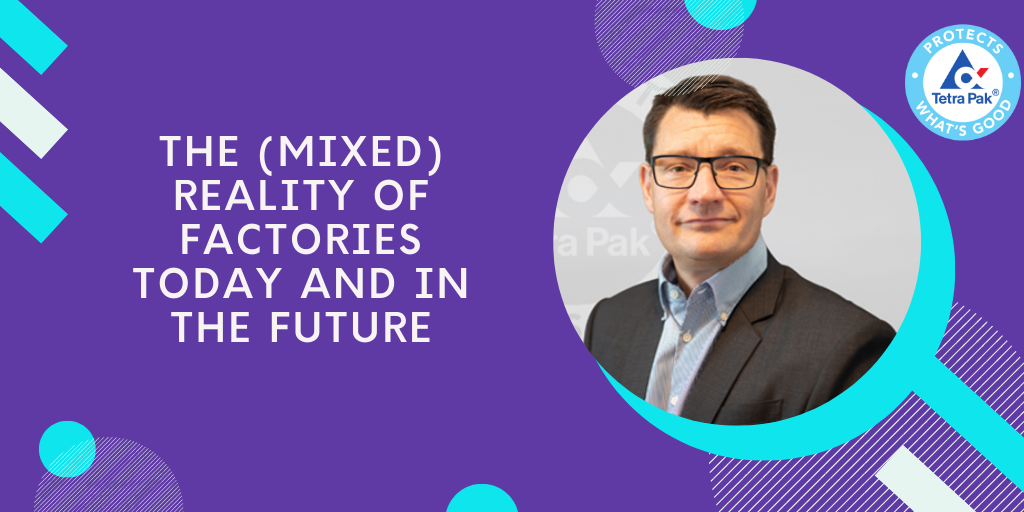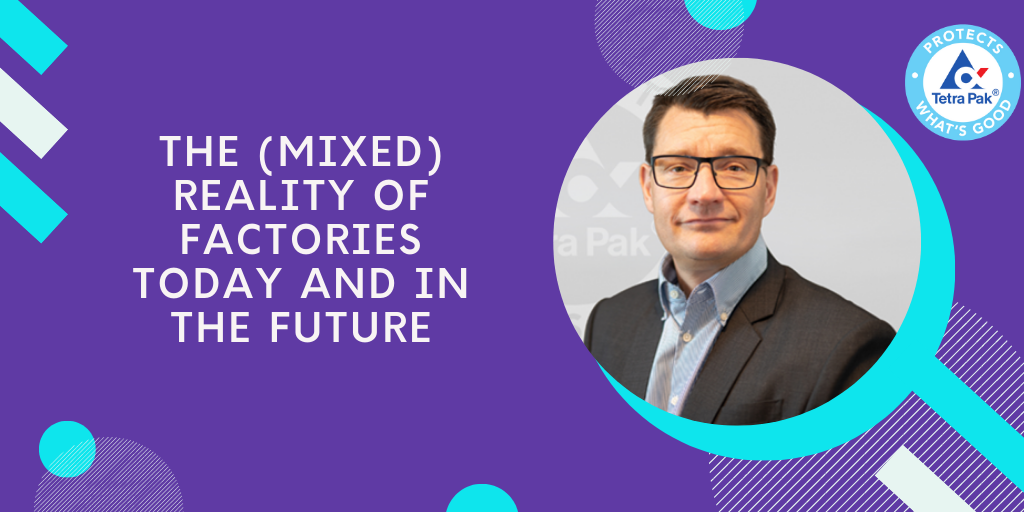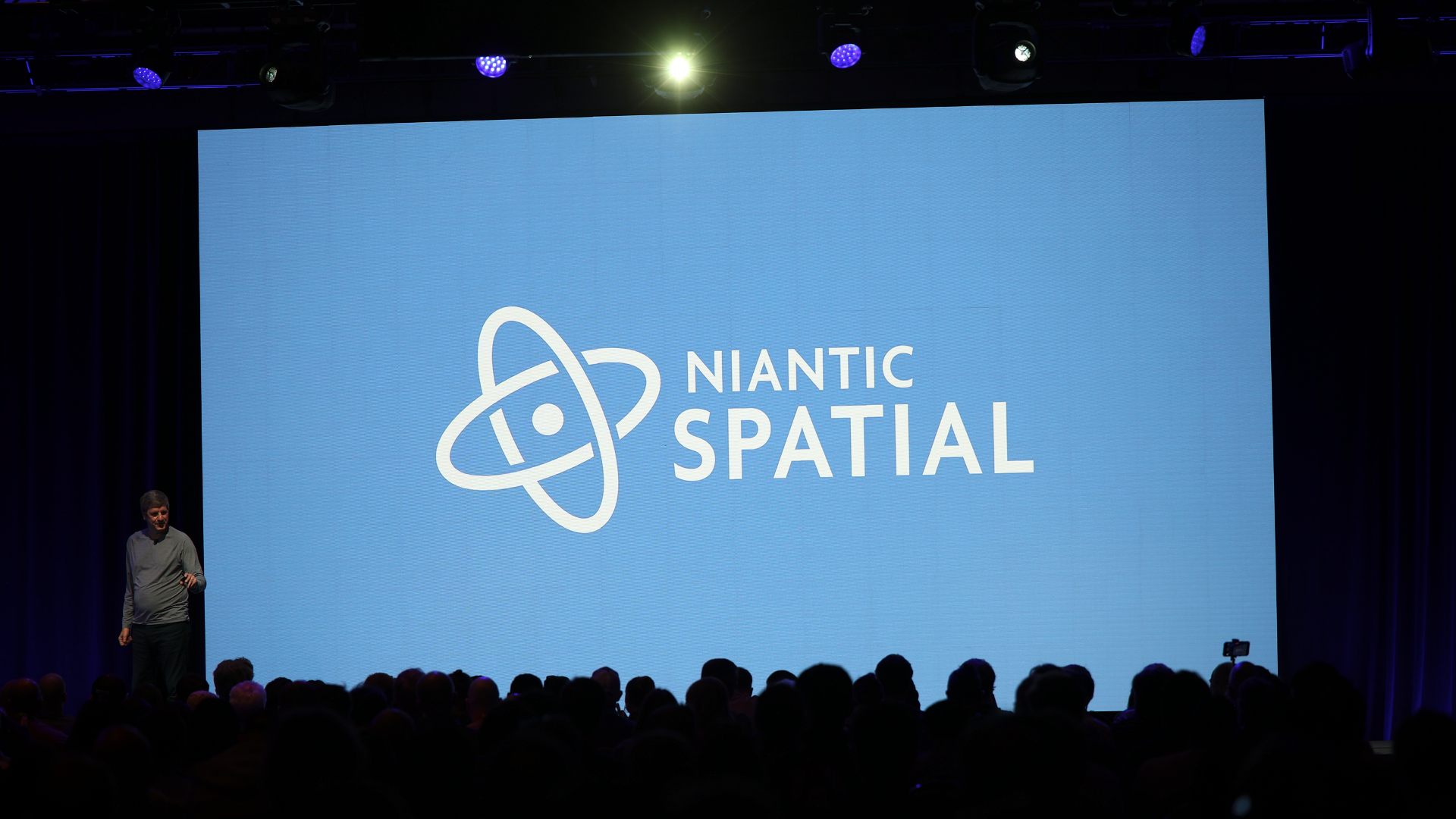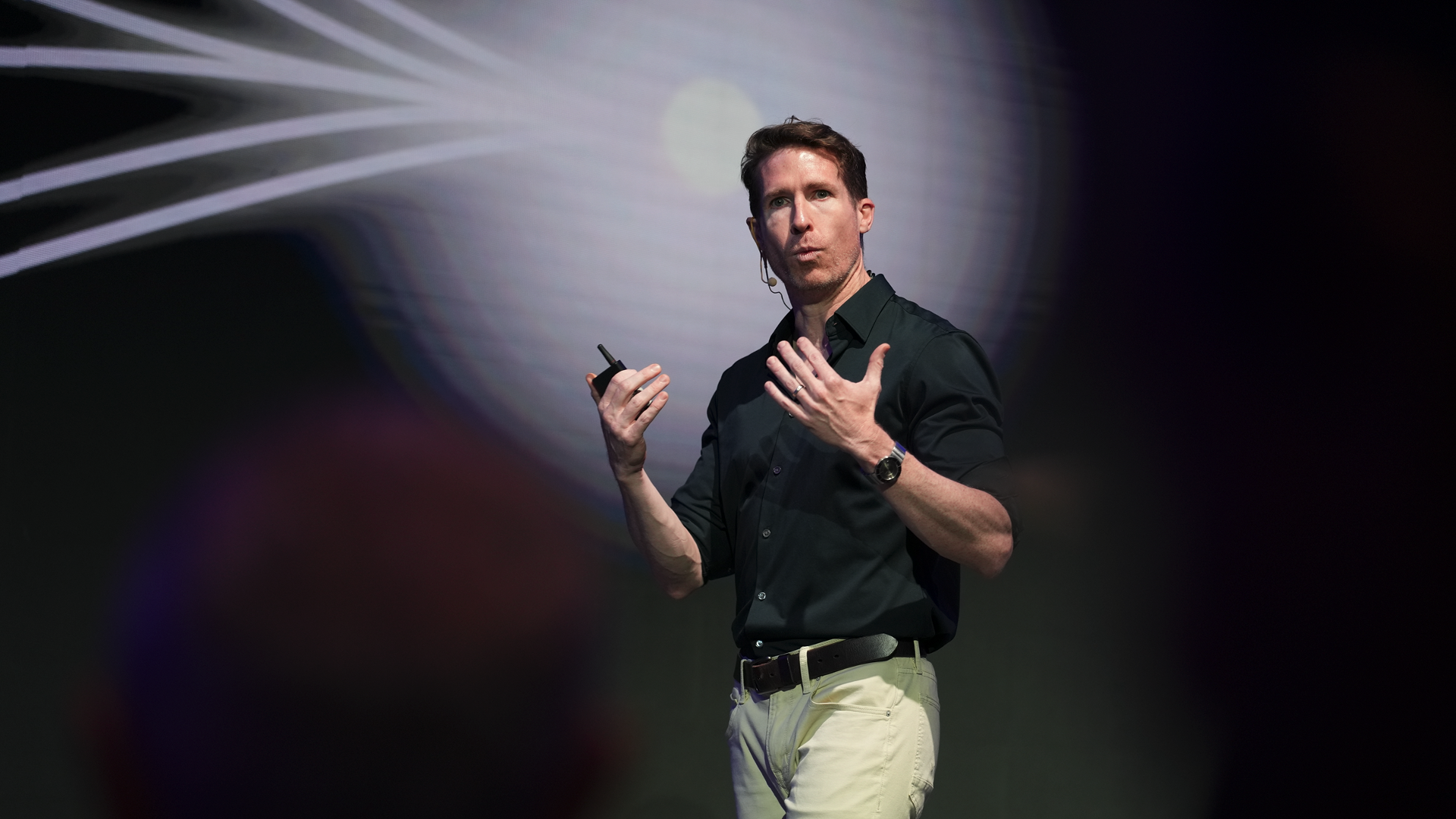
BY MATTIAS JOHANSSON, DIRECTOR OF INTEGRATION SERVICES, TETRA PAK
What I realized was that at any given moment - for example, while you're reading this post and maybe also listening to a podcast, commuting to work, waiting in line for coffee - we are actually experiencing probably the slowest pace of change we will ever experience. Like it or not, that pace is only likely to accelerate.
It sounds obvious but as I looked back on how the manufacturing industry has changed since I first started at Tetra Pak in 2002, I began to appreciate even more how the rate of change that we've experienced has enabled our industry to take leaps and bounds in making manufacturing more efficient and more affordable.
With customers all over the world, mixed reality is one of the technologies that holds the most promise for our business, as it makes it possible for us to link our own experts with clients based elsewhere. For instance, armed with the HoloLens - the wearable, holographic computer developed by Microsoft - service engineers around the world can work 'alongside' global experts specializing in the issues they are tasked with resolving. This means that from anywhere in the world, a service engineer can 'beam in' the right expert, who then sees and hears everything in real time, making the expertise needed virtually present on the factory floor within minutes.
Three or four years ago, we would have needed to have flown one or more of our global experts out to remote locations in South America, Asia or Oceania which would in turn have required significantly more time, energy and money. The new reality is a world where technologies are more affordable and accessible than ever before, supply chains are being reconfigured into ecosystems, and consumers are in control.
In the food and beverage industry, brands can utilize digital technologies to enhance visibility and intelligent tracking of food, materials and processes across the entire value chain. Brands can use the package for their products to boost loyalty and sales through new ways of interacting with consumers, enabling brand differentiation and growth opportunities.
I believe digitalisation will change the role of packaging. For example, Tetra Pak's connected packaging platform allows food and beverage producers to turn their packages into full-scale data carriers, offering increased traceability and value for each stakeholder in the entire value chain.
Food producers will be able to further improve production, quality control and supply chain transparency. Retailers can use the platform for real-time insights, allowing our customers to monitor stock movements using history and location tracking, receive issue alerts, and manage delivery performance.
It would be hard to deny the positive effects and benefits of these technological changes - especially when it comes to efficiency. As these trends and the way that we do things evolve, the manufacturing industry will need to change in order to keep up, and change can be challenging at times. Especially at the rate at which it needs to occur today and in the future.
With these changes comes the challenge and opportunity for manufacturers to step up in key areas, including sustainability, productivity and worker flexibility, by increasing product yield and reducing use of water, energy, labor, and food and material waste.
The use of digital technologies together with food and beverage expertise can help customers control output at the desired quality. Digital technologies can enable precise record keeping and fast root-cause analysis to minimize costly product recalls so customers can deliver on their food safety and quality promise at every step - from production line to the store shelf.
If the technological advances I've witnessed to date are any indication, I am confident that in the factory of the future, machines will be able to communicate with each other as well as with digital systems of the entire operation. They will automatically take on tasks such as diagnosing problems and ordering and delivering parts and will be able to source the engineers that are most suitable for the service needed. Supported by these smart solutions, the workforce will soon be able to focus on managing plants and making quick, informed decisions - continuously increasing the speed of production, reducing errors and minimizing product waste.
Through our unique expertise in the food & beverage industry, we allow our customers to realize value from digital technologies by implementing future-ready solutions that deliver real impact and tangible results. Leveraging our leadership, extensive data repository, and collaborations with world-leading technology providers, we help our customers turn data into insights and actions that enable them to optimize environmental performance, boost competitiveness and growth opportunities, and deliver food safety and quality across the entire value chain.
Remember, the rate of change will only get faster from here. Watch this space.
For more information, go to: https://connectingthefoodindustry.tetrapak.com/
* Mattias Johansson is the Director for Integration Services at Tetra Pak. In this position, Mattias manages Tetra Pak's Industry 4.0 integration, securing Tetra Pak's global technical centre of expertise and designing and implementing guidelines for customer solutions. Mattias holds a Bachelor of Science in Control and Maintenance.



